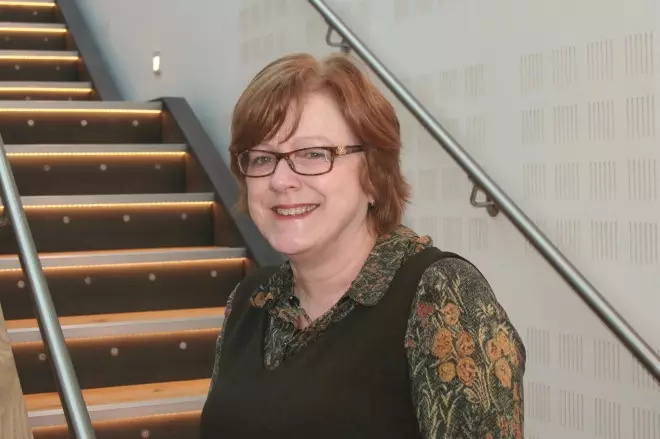
Carlton Reid / CC
The pharmacy minster Steve Brine has told MPs that he can only confirm that £2m of the promised £42m of Pharmacy Integration Fund (PhiF) funding for 2016–2018 has been spent.
In a letter to the All-Party Pharmacy Group (APPG), Brine said that although NHS England announced in October 2016 that it would spend £42m between 2016–2018, just £2m was spent in 2016–2017 and “we will know the full out-turn of this financial year in March”.
He said spending from the fund had “resulted in significant progress on initial programmes to deploy pharmacists in wider primary care settings to carry out medicines optimisation and to relieve the pressures on GP practices and hospital admissions”.
The PhiF 2018–2019 budgeting would be “subject to NHS England’s usual business planning processes and will be announced in due course”, Brine said.
APPG chair, Sir Kevin Barron, said: “On the PhiF, there is still no clarity over how much has been spent so far in this financial year, and only £2m of the £42m allocated for 2016–2018 was spent last year.
“We also don’t yet have an indication of the PhiF budget for next year, which is only four months away. We therefore continue to have questions about how this fund is being, and will be, used, and the extent to which it can provide meaningful impetus for new services which we all agree that we wish to see community pharmacy provide.”

Source: MAG/The Pharmaceutical Journal
Chair of the Royal Pharmaceutical Society English Pharmacy Board, Sandra Gidley, says the profession needs “urgent reassurance” that funds are being spent on developing pharmacy services
Chair of the Royal Pharmaceutical Society English Pharmacy Board, Sandra Gidley, described Brine’s lack of information as “deeply disappointing”.
“It is of great concern that no one appears to know how public money is being spent — or not spent,” she said.
“We already know what, in principle, the integration fund has been spent on but we do not know the precise amounts.
“I would urge the minister not to accept excuses from his officials and hope that he presses to obtain the information we all very much want to see. We have already seen an erosion of the fund and recent events raise questions about how secure funding is for next year. The profession needs urgent reassurance on this.”
The Pharmaceutical Services Negotiating Committee (PSNC) said that the profession had had high hopes for the Pharmacy Integration Fund and wanted to see the full allocation spent.
“While we welcome moves to offer training for community pharmacists and to improve IT links to the rest of primary care, we are yet to see the bold attempts to integrate community pharmacy fully into primary care that we believe are needed,” said PSNC chief executive Sue Sharpe.
Community pharmacies also needed to have full read/write access to primary care records and to be involved in local care planning with sustainability and transformation partnerships: “we hope further Pharmacy Integration Fund initiatives will support this,” she added.
Chief pharmaceutical officer for England, Keith Ridge, told a meeting of the APPG on 30 October 2017 that he would provide a breakdown of PhiF spending so far, but, despite a request from The Pharmaceutical Journal, nothing has yet been provided.
Ridge said that there had already been a “considerable commitment” from the PhiF, which included 1,000 postgraduate diplomas, 2,000 independent prescribing qualifications, professional leadership programmes for 600 pharmacists and technicians, and the urgent medicines service (NUMSAS). But none was costed.
When the PhiF was announced, one of the pledges was that from April 2017 there would be a deployment of pharmacy professionals in care homes and funding to develop a pharmacist workforce, including prescribing qualifications, to work in care homes. There has been no announcement on this so far.
In his letter to the APPG, Brine expressed “full support” for NHS England plans to enable community pharmacies to have full read and write access to patient primary care records, which he said he would like to see “as soon as possible”.
“Our aspiration is that a pharmacist working in any clinical setting will be able to record information in such a way that it can be seen by anyone providing primary medical care,” he said.
Brine also said he wanted pharmacists to have access to the full medical care record when providing clinical services.
But he warned: “This is a complex process with a number of challenges, including the completion of standardised datasets, and is dependent on a number of IT programmes already underway.
“My officials, NHS England and NHS Digital are currently scoping next steps. I expect a roadmap to be available in the near future.”
Barron said: “On read-write access to patient primary care records for community pharmacy and full access to the primary medical care record, we’re encouraged by the minister’s personal commitment to making these happen and we are keen to see the roadmap as soon as possible.
“These developments will enhance patient care, increase joined-up working between pharmacy and other parts of primary and secondary care and improve safety.”
You may also be interested in

Tackling the NHS drug budget: why we set up a regional collaboration for medicines value

Lack of joined-up working between pharmacy and general practice is ‘nonsensical’, says former BMA chair
